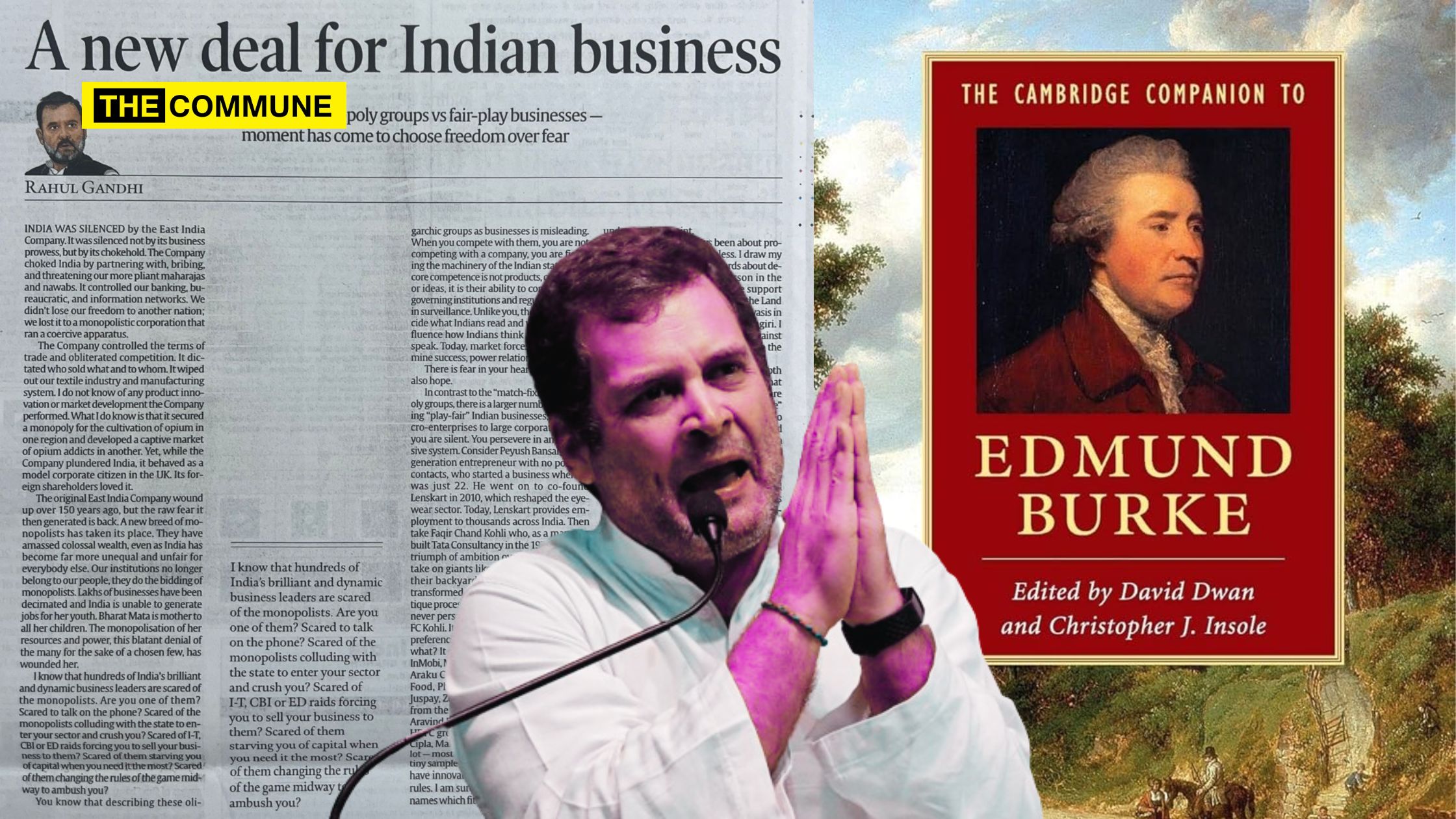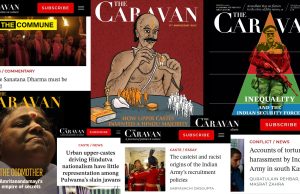
A recent editorial attributed to Rahul Gandhi, Leader of the Opposition in the Lok Sabha, has stirred up controversy over allegations of plagiarism and possible AI-assisted ghostwriting.
Story that caught the eye: @RahulGandhi writes an op-ed in @IndianExpress to expand on his ‘New Deal’ views on big business and his stand against monopolistic tendencies. Maybe we should have a debate between the Rahul and Modi model of doing business in India? pic.twitter.com/ZLo1Y2j8JJ
— Rajdeep Sardesai (@sardesairajdeep) November 6, 2024
The editorial, which critiques monopolistic control in India and appeals to the business community to resist the concentration of power among a few, stands accused of heavily borrowing ideas from Chapter 13 of Edmund Burke on India, published online by Cambridge University Press in 2012.
This is Plagiarism, just read two lines and realized this article is a smartly copied view of Chapter 13—Edmond Burke on India -published online by Cambridge University Press on 05 December 2012 and later improved by one of the AI platforms. There is no need to read further.…
— Padmaja 🇮🇳 (@prettypadmaja) November 6, 2024
Rahul Gandhi’s article is structured into three parts. It first discusses how the East India Company wielded influence in colonial India. Then, it focuses on the often maligned business tycoons of India without having the audacity to name them and concludes with a ‘new deal’ to shape the business environment in India.
Critics argue that the editorial follows the themes and rhetoric of Burke’s work, specifically on issues of foreign monopolistic control over India and the detrimental effects of monopolies on society’s social and economic fabric. The similarity between the two texts, particularly in the framing of monopolistic entities as exploitative and the analogy of a weakened “motherland” suffering under corporate subjugation, has prompted claims that the content is not entirely original. It is alleged that Gandhi’s editorial uses these historical critiques and presents them as contemporary commentary, with only a change in context to refer to modern Indian monopolies.
Union Minister Rajeev Chandrashekar wrote a similar article in 2009 as a blog post critiquing the then UPA government, emphasizing the need to “support diverse businesses, not just a few giants.”
Alleged Ghostwriting And AI Assistance
Speculation about the editorial’s authorship has also surfaced. Some sources suggest that the editorial may have been ghostwritten by someone who could have allegedly employed AI tools to refine and enhance the language, framing, and structure. AI-assisted content generation is increasingly common, especially for public figures seeking polished, sophisticated language without dedicated writing teams.
https://twitter.com/Bharatmkm/status/1854252077557371251
However, while AI can streamline content creation, it also raises ethical questions if it is used to mask unoriginal or borrowed content.
The editorial’s rapid distribution through digital channels, including popular media figures and social media influencers, further fueled suspicions of a coordinated campaign. Critics have pointed out that media personalities, allegedly influenced by political IT cells, actively promoted the editorial to frame Gandhi as a vocal advocate against monopolistic practices. This involvement of media and influencer networks adds another layer of controversy to the editorial’s origins, suggesting it may have been strategically crafted and distributed to shape public opinion.
Rahul Gandhi’s editorial, now tainted by allegations of plagiarism and ghostwriting, not only undercuts his credibility but also raises serious questions about intellectual honesty in political discourse. If indeed lifted from scholarly works on colonial exploitation without attribution, Gandhi’s supposed rallying cry against monopolistic control comes across as hollow, lacking originality and ethical grounding. By presenting recycled ideas as his own, he imperils undermining the message he aims to champion—empowering Indian businesses and resisting undue corporate influence.
For a leader who positions himself as a voice for fairness and justice, the use of ghostwritten, AI-embellished content borrowed from historical texts is ironic and deeply misleading. Rather than demonstrating bold, independent thought, Gandhi’s editorial now appears to be a crafted narrative that not only diminishes his own authenticity but also insults the intelligence of his audience.
Borrowing heavily from Burke’s ideas on colonial exploitation while posing as an advocate for India’s modern business interests undermines his message, leaving the reader to wonder if he truly grasps the weight of his own words—or if they are merely scripted for effect.
Subscribe to our channels on Telegram, WhatsApp, and Instagram and get the best stories of the day delivered to you personally.




